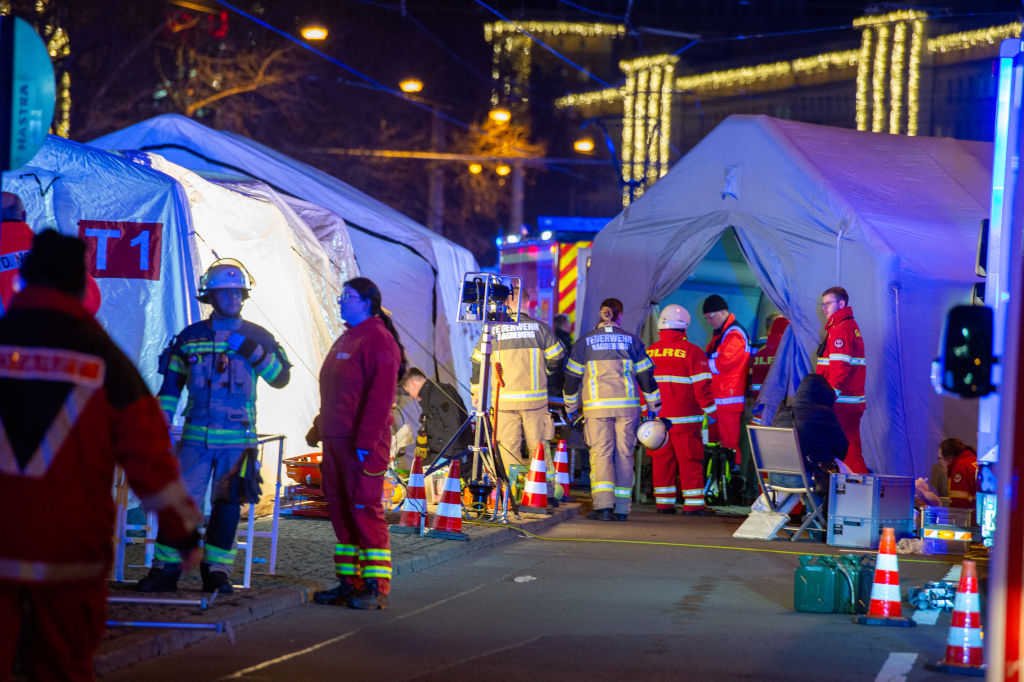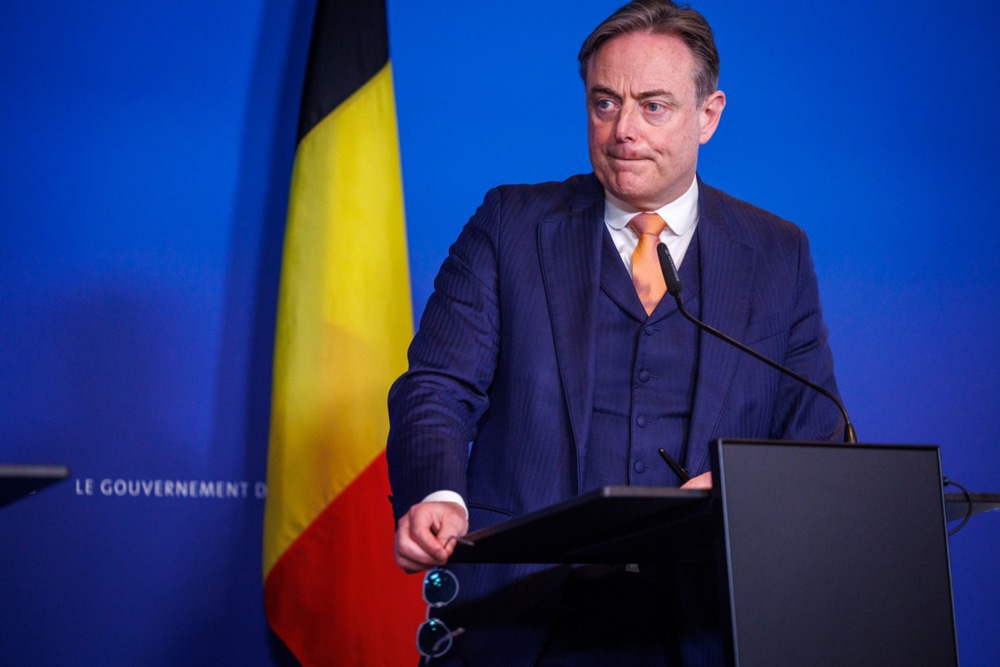The deadly attack on the Magdeburg Christmas market in December 2024 could have been prevented if proper security measures had been in place, according to an expert report commissioned by the city council.
The findings, prepared by the Federal Association for Event Safety (BVVS), delivered a damning assessment of both the city authorities and the market organisers, German news outlet MDR reported on August 29.
In the Magdeburg attack, a man drove at high speed into the Christmas market, killing six and injuring more than 300 people.
On August 21, a Saudi suspect, “Taleb A”, was charged on six counts of murder and 338 of attempted murder.
The BVVS concluded that serious shortcomings in the event’s security system directly enabled the atrocity on December 20, 2024.
According to the report, the safety plan for the market did not meet recognised standards and contained “pages and pages of omissions”. Most significantly, access routes to the market were left open and inadequately protected, despite the acknowledged risk of vehicle attacks, it stated.
Experts stressed that a closed protection perimeter should have been established, using certified barrier systems that could still have allowed emergency access for rescue services.
Tested and widely available systems existed that would have prevented entry by the attacker’s vehicle, the report said.
Instead, the Christmas market was bordered by large, coloured concrete blocks, which experts described as outdated, uncertified and potentially dangerous.
Such blocks, security specialists noted, could not reliably stop heavy or fast-moving vehicles and may themselves become lethal projectiles when struck.
In Magdeburg, the blocks were placed directly next to the event area, without additional speed-reducing measures that could have mitigated the risk.
The BVVS also criticised the lack of a structured access protection concept and a detailed risk analysis for each entry point. While the organisers had acknowledged the theoretical danger of vehicle attacks, they failed to assess the likelihood of such an incident or its possible impact, it said.
Deficiencies extended beyond physical barriers. According to the interim findings, the Christmas market’s safety plan did not include a clear, structured alarm and emergency procedure. This, the experts warned, could have led to “unclear, unco-ordinated processes” during a crisis.
Risks identified in the plan were not matched with effective countermeasures and the management structures described fell short of established standards for secure event organisation, the report found.
After the deadly terror attack on a Christmas market in Magdeburg, the capital of the German state of Saxony-Anhalt, it has emerged that German officials received several warnings about the alleged perpetrator over the past few years but failed to act on them.…
— Brussels Signal (@brusselssignal) December 23, 2024
The report was first presented on August 22 in a closed meeting of the Magdeburg city council’s special committee. Its findings have raised difficult questions about the shared responsibility of the organisers and city authorities.
Representatives of Magdeburg had previously argued, in a State parliamentary inquiry, that they relied on police to provide mobile vehicle barriers and that legal requirements for event access protection were lacking.
The BVVS rejected this defence, noting that both a police guideline on “protection against crossing offences in public spaces” and relevant German Institute for Standardisation standards were already in force at the time.
Crossing offences in public spaces include failing to obey signals or rules at a pedestrian crossing, causing danger to others.
Paul-Gerhard Stieger, managing director of Christmas Market, the event’s organising company, responded that he regarded access protection against terrorist threats as a responsibility of the State, not of the organisers.
He said his group was only tasked with ensuring “internal security” related to market operations and stressed that the measures implemented in 2024 had not been criticised by the police, fire brigade or public order office at the time.
Magdeburg city spokesman Michael Reif emphasised that the purpose of commissioning the report was to “put its finger in the wound” and identify weaknesses.
He underlined that no personal or legal blame was being apportioned. Instead, the findings would first be evaluated within the administration before being discussed with all parties involved.
The Saxony-Anhalt State parliament, though, has already established a committee of inquiry to look into the incident, alongside criminal investigations by the Naumburg Public Prosecutor’s Office.
Christmas is now a target. As more information comes in about the perpetrator of the Christmas market attack on the German city of Magdeburg that left several people dead and over a hundred injured, this will remain the lasting conclusion. https://t.co/Z2Z8y0r3a4
— Brussels Signal (@brusselssignal) December 28, 2024





